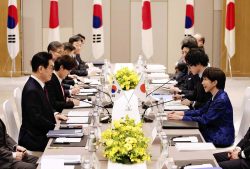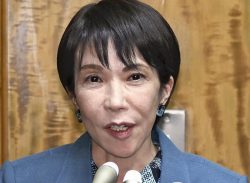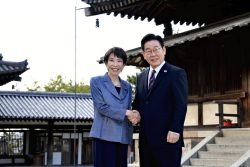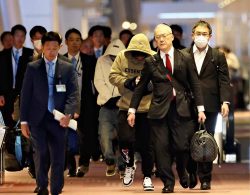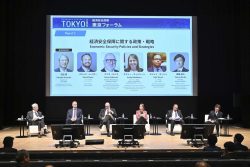Japan, U.S. to Cooperate on Procurement of Legacy Semiconductors; Aim to Reduce Dependence on China
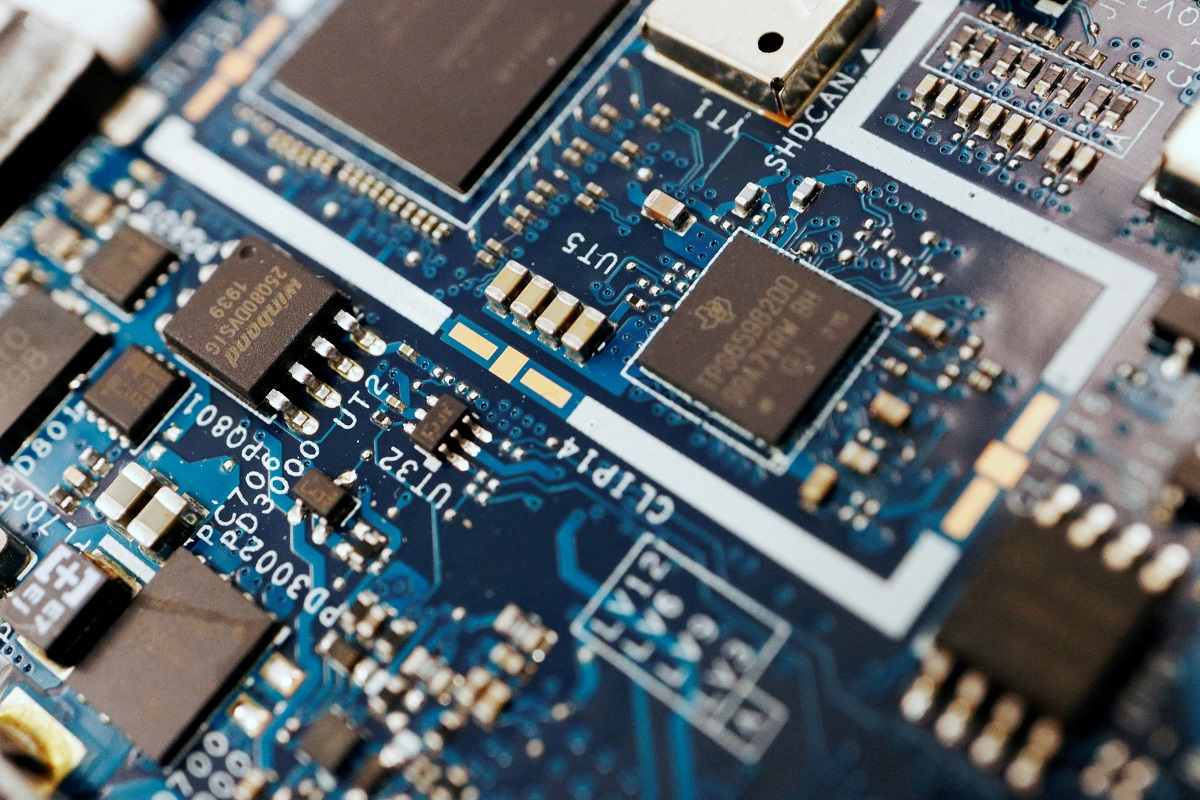
Semiconductor chips are seen on a circuit board of a computer in this picture taken on Feb. 25, 2022.
13:45 JST, April 2, 2024
Prime Minister Fumio Kishida and U.S. President Joe Biden are expected to confirm cooperation in building a semiconductor supply network when they meet next week to reduce dependence on supply from certain countries.
Tokyo and Washington are eager to stop relying heavily on China by switching procurement to homegrown products or those from like-minded countries and regions. The expression “Strengthening the supply network of semiconductors in cooperation with like-minded countries” will be included in a joint statement after the meeting.
At the summit meeting, Kishida and Biden will likely agree to cooperate with the Group of Seven industrialized nations and other like-minded countries in procurement to reduce dependence on Chinese “legacy” semiconductors.
Legacy chips are less advanced chips that are also called “old-generation” semiconductors. They are less expensive than cutting-edge chips and are mainly used in consumer electronics and automotive products. Japan has designated old-generation semiconductors such as power modules and microcontrollers as specified critical goods under the Economic Security Promotion Law and provides support to manufacturers in the industry.
The Japanese government is considering providing subsidies to domestic companies that support the policy to reduce dependence on China-made chips. Economy, Trade and Industry Minister Ken Saito and U.S. Commerce Secretary Gina Raimondo will work out the details on strengthening the supply network.
The Biden administration is wary about China’s semiconductor strategy to boost its manufacturing capacity and increase its global market share.
The U.S. research firm Rhodium Group in March last year published the result of a survey that found that China controls around 30% of manufacturing capacity globally for 50-180 nanometer (one billionth of a meter) legacy chips used in automobiles and consumer electronics. China has plans to build more factories. It is estimated that China may raise its manufacturing capacity to about 46% globally within a decade.
There is a sense of crisis that depending on Chinese chips could increase the risk of being subject to economic coercion whereby Beijing would restrict trade and put pressure on importers. Kishida and Biden would see such coercion as a problem and oppose the move together.
"Politics" POPULAR ARTICLE
-

Japanese Language Requirement Eyed for Permanent Residency Status; LDP Plans Revisions of Laws on Foreigners
-
-250x167.jpg)
Japan Eyes Plan to Accept Up To 1.23 Mil. Foreign Workers by End of Fiscal 2028
-
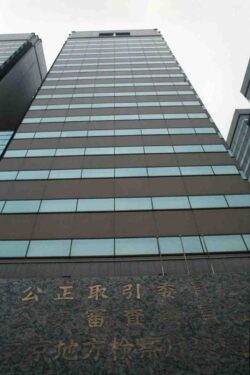
AI-Driven ‘Zero Clicks’ Phenomenon Threatens Democracy; News Outlets Must Be Able to Recover Costs, Stay Independent
-

Japanese Public, Private Sectors to Partner on ¥3 Tril. Project to Develop Domestic AI, SoftBank to Be Key Firm Involved
-

Japan’s Defense Ministry to Extend Reemployment Support for SDF Personnel to Age 65; Move Comes Amid Ongoing Labor Shortage
JN ACCESS RANKING
-

As Chinese Tourists Shun Japan, Hotels and Stores Suffer
-

BOJ Gov. Ueda: Highly Likely Mechanism for Rising Wages, Prices Will Be Maintained
-

Core Inflation in Tokyo Slows in December but Stays above BOJ Target
-

Osaka-Kansai Expo’s Economic Impact Estimated at ¥3.6 Trillion, Takes Actual Visitor Numbers into Account
-

Japan Govt Adopts Measures to Curb Mega Solar Power Plant Projects Amid Environmental Concerns


